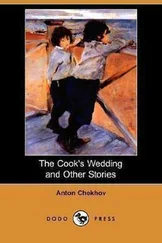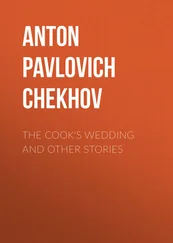Fair stood the wind for France
Halfway through filming our first series, Floyd on Fish , we caught the ferry to Saint-Malo. The idea was to test that old fish merchant Fred Brimmacombe’s theory that the French adore practically anything that comes from the sea whereas we, with a few exceptions, prefer cod, plaice, and haddock.
Just a hundred miles south of Plymouth there’s a whole different attitude to the fishy delights that come from this piece of sea separating our two countries. The thing that interested me was why that should be. Was it history or circumstance, maybe due to hardship or war?
When I first set eyes on the town from the deck of the ferry I thought how beautiful it looked, like a huge Walt Disney castle with mighty walls and towers and turrets rising from the sea. Conversely, I thought of the first thing that would greet passengers when they sail from France to Plymouth—a large, smouldering scrap metal yard right next to the docks. I felt sure, after seeing this delightful town from the ship, we’d find people eating small hillocks of shellfish on every street corner and I wasn’t wrong.
We were here for three days, enough time to film the fish market in the morning, maybe a restaurant at lunchtime and possibly the famous oyster beds in the afternoon. After leaving our kit at the hotel it was time to get our bearings and begin to explore the town. It was late afternoon now and beginning to get cold. The all important fish market was empty at this hour, the stone counters washed down ready for business the next morning. We walked through the narrow ancient streets with their high walls. It was like a film set in which you might turn a corner and glimpse a weary knight returning from the Crusades, leading his trusty steed in search of lodgings for the night. Just six hours on a ferry and we had arrived in a different world.
After a couple of drinks we thought we’d find somewhere in which to eat all sorts of fish for the entire evening. Floyd announced, ‘I’ll find a really good restaurant but you’ve got to trust me. I don’t want to read any guides, I’ll just do it by sight, smell, and gut instinct.’
He examined the menu of the first restaurant, built into the town wall by the main entrance. We waited patiently while he had a peep inside, before declaring it far too expensive, but perfect for Americans who didn’t know any better. We continued, like a band of hunters, with Keith as our German pointer flushing out pheasants. He’d pop into a hotel and come out a few seconds later only to give it the thumbs down. There were six of us, including Clive the cameraman, Timmy on sound, Andy, the assistant cameraman, who also helped with the lights, and Frances Wallis, my trusty Scottish assistant and mother to us all—and we were all ravenous. I was dreaming of half a dozen oysters, followed by fish soup and maybe a large grilled Dover sole and a bottle of fresh, clean-tasting Muscadet, but still we traipsed on. Fortunately Saint-Malo is a compact town.
Finally, Keith stopped outside a small place with steamed-up windows called Au Gai Bec (At the Happy Mouth).
‘This is what I was looking for,’ he said. A warm glow, the sound of good conversation and clinking plates were coming from inside. ‘You can keep your Michelin stars. Steamed-up windows: the first sign of a busy, happy restaurant.’
We went in and the warmth and smells of buttery fish soup, garlic, and a hint of Gauloise hit us straight away. Curiously it wasn’t dissimilar to Keith’s Bistro back in Bristol. It was packed, but the owner, who wore Buddy Holly glasses, asked us to wait and have a drink at the small bar. From where we were standing you could glimpse the kitchen where a young woman and an older lady—her mother perhaps—toiled over an antiquated stove. It was perfect.
That evening was one of the happiest we ever spent as a film crew on the road. The food was quite wonderful. We shared a large platter of fruits de mer, like a glossary of seafood from the continental shelf: oysters and shrimps, clams of every size, winkles and whelks and raw cockles. Next we had a freshly made cotriade , a Breton fish stew made with that day’s catch, which included meaty chunks of conger eel, mackerel, and sardines. We were the last customers in the place, a perfect opportunity to get to know the owner, Jacques Yves. We didn’t need to tell him how much we enjoyed the food, but we did anyway. Over a fine pear tart and sorbets made with Calvados we told him of our mission to understand France’s love affair with fish. He assured us that we’d come to the right place and promised to help us in any way he could. In true Field Marshal Montgomery fashion we declared that from that moment on the Happy Mouth would be our brigade headquarters—and it was, for a number of years to come.
The next day involved a very early start and already, in that lovely restaurant where we were so happy, it had gone past midnight. Jacques Yves said that to wind down he usually had a nightcap on his way home, in a little bar not far away from here.
‘No, no,’ I protested. ‘It’s important we all get a good night’s sleep because we have to film in the fish market at first light and that is the sole (no pun intended) reason we came here in the first place. So let’s have no more talk of nightcaps. It’s bedtime now and that includes everybody.’
Approximately two hours later Keith and I tottered back along the cobbled streets to our hotel, feeling extremely happy with ourselves. Of course, Clive, Timmy, Andy, and Frances had sensibly gone to bed as soon as the meal was over and Keith and I had only popped in out of politeness really, but Jacques Yves was quite right, it was a lovely little bar, and once the locals found we were from the BBC they wouldn’t let us buy a drink.
The next morning I had a hangover of humungous proportions and worse, far worse, I’d slept through my alarm call. Even the hotel manager hadn’t been able to wake me. And so the others all went off to film at the market while I slept on. It was an unforgivable act and I was deeply ashamed. In times of war I’d have been tied to a cannon wheel and shot—deservedly so. However, as luck would have it, there weren’t too many locals out buying fish that early in the morning. Apparently, the market wouldn’t start to get busy until ten o’clock when the sun had crept over the high walls of the town, flooding the streets with golden light. So Keith and the crew had returned to the hotel for café au lait served in huge ceramic bowls and warm, fresh croissants with apricot jam. Thank you God.
When we returned to the market the stallholders seemed much less grumpy than their British counterparts. Maybe it was because they were so busy. There were rows and rows of tables piled high with oysters, all neatly marked in order of size. In my limited experience I knew the smaller native oysters—the flat ones with smooth shells—to be by far the best tasting. Then there were heaps of lively pink and apricot-coloured langoustines, clearly landed that morning, judging by the way they were trying to walk out of the market. The langoustine should be the culinary symbol of Brittany. Here the locals eat them simply boiled and served with mayonnaise. I made a note we had to try some before catching the ferry the next morning.
There was a large cauldron of whelks being boiled in seawater then scooped up with a huge wire ladle and unceremoniously plonked into fish boxes. I knew my hangover was fading fast when that hot shellfish aroma from the whelks, reminiscent of freshly cooked lobster, started to make me think about lunch.
Keith was on top form in the market and knew all the names of the fish on display and how best to cook them. We discovered that most of the brown crabs had come from Cornwall and Devon, and that fishing boats from Plymouth very often called in to land their catch. I’m not sure if it was strictly legal, but it made sound sense if you’d just caught a boatful of red mullet and John Dory in the middle of the English Channel. The prices would be a lot better than at home because the locals love eating fish like these. I wouldn’t mind betting it was the sort of trade that had secretly been going on since long before the Napoleonic Wars.
Читать дальше












